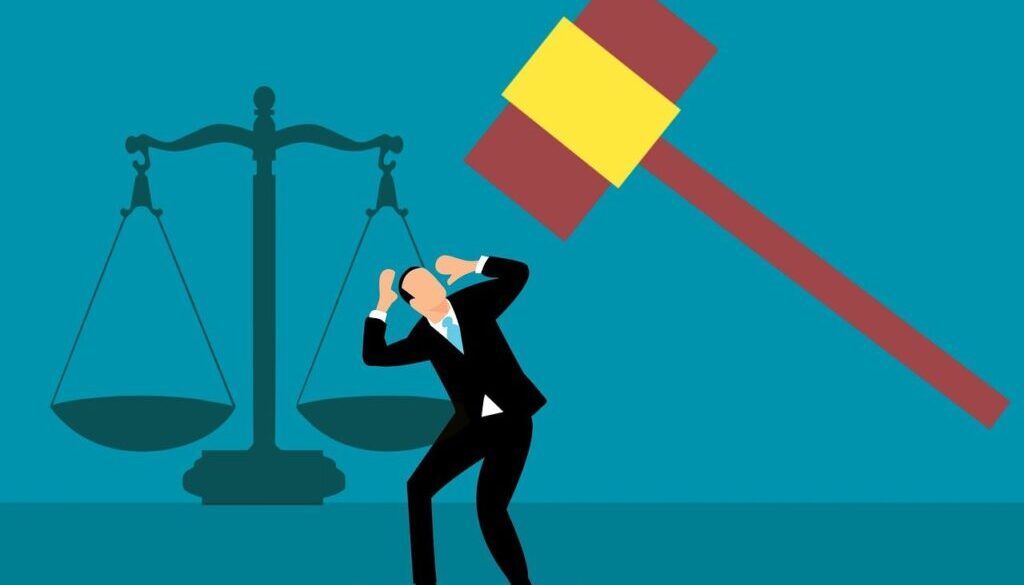Stop Judging: The Hidden Weight You’re Carrying
Judging—it’s something most of us do so often we barely notice it.
We pass opinions, critique others, and form conclusions about people, situations, and even ourselves. It often feels harmless—maybe even necessary. But beneath the surface, it’s loaded with consequences that ripple through our lives in ways we rarely stop to examine.
In its original sense, the word “condemn” literally means “to damn.” Let that sink in.
When we judge, we’re not just offering an opinion. In some profound sense, we’re constructing and maintaining a personal hell—for someone else, and for ourselves.
“Do not judge, or you too will be judged. For in the same way you judge others, you will be judged.” — Matthew 7:1-2
A bold statement.
Notice how Jesus doesn’t specify who will judge us in return. It feels deeper than a mere threat of divine punishment.
Judgment has a way of circling back to us—psychologically, relationally, and spiritually.
It distorts our perception, isolates us from others, and disrupts our inner peace, often in ways we fail to notice until the damage is done.
Let’s explore why judgment is so harmful—and, more importantly, how we can break free from its grip to live with greater compassion, clarity, and freedom.
-
What Does It Mean to Judge?
At its core, judging is the mental process of comparison—measuring something or someone against a standard we believe defines value or worth.
We do this constantly in daily life:
- Choosing the ripest apple at the grocery store.
- Checking IMDb to decide if a movie is “worth watching.”
- Comparing reviews to find the best place for dinner.
This kind of judgment can feel practical, even necessary. Life is short, and we want to optimize our time and experiences.
But when judgment shifts from objects to people, it becomes something far more dangerous.
Suddenly, we’re no longer just making choices—we’re assigning value to human beings.
- He’s selfish.
- She’s lazy.
- They’re not worth my time.
The problem? People aren’t products.
People are fluid—capable of growth, healing, and transformation. But judgment freezes them in place, reducing them to a static label.
It flattens their complexity into a single moment or behavior, denying their capacity for change.
And here’s the deeper truth:
We’re rarely in a position to see the whole story.
As Scripture reminds us:
“People look at the outward appearance, but the Lord looks at the heart.” — 1 Samuel 16:7 (NIV)
We often judge based on fragments of someone’s life—one action, one flaw, one visible moment. Yet God sees far deeper, into the fullness of a person’s story, pain, and potential.
When we judge, we forget this truth.
We reduce infinite complexity into simplistic conclusions.
And in doing so, we risk distorting reality—not just about others but about ourselves.
-
Why Do We Judge?
At first glance, judgment seems to offer clarity and control. It feels like a way to make sense of the world—to decide what’s good, bad, right, or wrong.
But beneath that surface, judgment often reveals something deeper:
Our own insecurities, fears, and need for self-protection.
“Everything that irritates us about others can lead us to an understanding of ourselves.”
— Carl Jung
Let’s break this down further.
Projection of Our Own Struggles
Often, the traits we criticize most in others mirror something unresolved within ourselves.
In other words, we condemn in others what we dislike—or fear—within ourselves.
Jesus highlighted this with striking clarity:
“Why do you look at the speck of sawdust in your brother’s eye and pay no attention to the plank in your own eye?” — Matthew 7:3 (NIV)
This kind of judgment often distracts us from our own pain or growth:
- Spotting someone’s “arrogance” when we feel insecure.
- Criticizing another’s impatience because we haven’t dealt with our own frustrations.
It’s easier to point the finger outward than to explore the discomfort within.
A Defense Mechanism to Avoid Vulnerability
Judgment can also act as emotional armor—a way to shield ourselves from self-reflection.
When life feels chaotic or overwhelming, judging others can feel like a shortcut to emotional relief:
- If your life feels out of control, mocking a neighbor’s messy yard feels easier than facing your own struggles.
- If you’re struggling with self-doubt, fixating on someone else’s mistakes feels safer than confronting your own.
It feels protective in the moment—but judgment doesn’t heal.
It numbs. It distracts. It keeps us emotionally distant from what we truly need to address.
Social Conditioning and Cultural Influence
We live in a world that normalizes judgment.
From an early age, we’re conditioned to critique and rate everything—sometimes even people’s worth.
- Social media: People’s value reduced to “likes” and follower counts.
- Gossip culture: Where a person’s lowest moments become entertainment.
- Cancel culture: Entire life stories reduced to a single mistake.
We mistake strong opinions for clarity when, in reality, it often just reinforces division.
But clarity and truth require context.
And judgment rarely makes room for that.
The Illusion of Control
Judging others can feel powerful—like we’re declaring authority over who someone is.
But this sense of control is an illusion.
Judgment gives the false impression that by labeling others, we’re somehow mastering our own discomfort.
- It doesn’t fix what’s broken.
- It doesn’t make us whole.
- It doesn’t solve our struggles.
Instead, it distracts us from the very growth we resist—turning our attention outward when the real work begins within.
The Source of Judgment
Ultimately, judgment isn’t about truth.
It’s about self-protection.
It allows us to avoid vulnerability.
It gives us a false sense of control.
It shields us from our own wounds.
3. The Hidden Illusions of Judgment
“A person may think their own ways are right, but the Lord weighs the heart.” — Proverbs 21:2 (NIV)
Judgment often feels like clarity, but it hides behind three illusions:
- The Illusion of Being Right
“I noticed their flaw, so I must be correct.”
Spotting someone’s fault doesn’t make us morally superior. It reveals a fragment of their story, not the whole truth.
- The Illusion of Superiority
“At least I’m not as bad as them.”
Judging others can feel like self-elevation, but it disconnects us from empathy and personal growth.
- The Illusion of Control
“Criticizing others makes me feel powerful.”
Labeling others gives the illusion of control, but true strength lies in mastering our own reactions, not controlling others.
The Truth Beneath the Illusions
Criticism doesn’t elevate—it shrinks you. It narrows your capacity for empathy, grace, and connection. True freedom comes when we release judgment and embrace compassion.
-
Why Is Judgment So Harmful?
Judgment doesn’t just harm those we judge—it backfires on us too, spiritually, emotionally, and relationally.
- It Freezes People in Time
Labeling someone “lazy” or “selfish” denies their potential for growth. It traps them in their lowest moments, as if change were impossible. There is nothing colder than that.
Yet, growth and redemption are at the core of every spiritual tradition:
“Therefore, if anyone is in Christ, the new creation has come: The old has gone, the new is here!” — 2 Corinthians 5:17 (NIV)
Judgment holds people back. Grace makes room for transformation.
- It Alienates You from Your True Self
Judgment often comes from the ego, which thrives on comparison and superiority.
But your true self—rooted in love and humility—becomes overshadowed when you fixate on others’ flaws.
The more you judge, the further you drift from your soul’s wisdom and authentic compassion.
- It Creates Emotional Isolation
Judgment builds walls, not bridges.
By turning people into categories, it separates us from real connection and reduces relationships to surface-level assumptions.
It also distances us from God’s call to grace and humility:
- It Stunts Personal Growth
Quick judgments prevent curiosity.
By surrounding yourself with like-minded opinions, you limit your ability to learn, evolve, and see beyond your narrow perspective.
Judgment locks you in comfort. Growth requires discomfort.
- It Diminishes Life’s Essence
When life becomes about rating and critiquing—from people to experiences—you lose the richness of simply being present.
You trade real engagement for constant comparison.
“But you—who are you to judge your neighbor?” — James 4:12 (NIV)
Judgment contracts the heart. Grace expands it.
Would you like me to continue refining the next section?
-
Breaking the Cycle of Judgment: How to Stop
It’s one thing to understand why judgment is harmful—but how do we actually break free from this deeply ingrained habit?
It starts with intentional, daily shifts in mindset and heart posture.
- Practice Self-Awareness
Judgment often operates on autopilot. The first step is noticing it in the moment.
- Catch yourself mid-judgment and ask: “Am I reacting, or am I truly seeing?”
- Dig deeper: “What fear, hurt, or insecurity might be driving this thought?”
Bringing awareness into the process interrupts the cycle and creates space for compassion.
2. Shift from Criticism to Curiosity
Curiosity opens the door to understanding—while judgment shuts it down.
- Replace “They’re so selfish.” with “I wonder what they might be struggling with.”
- Instead of assuming, ask: “What might have shaped their behavior?”
Curiosity dissolves assumptions and creates room for empathy, even when someone’s actions seem difficult to understand.
3. Embrace Humility
Judgment often stems from believing we know someone’s story—but we rarely do.
- Admit you don’t have the full picture.
- Remember your own growth: Reflect on moments when you were misunderstood or changed despite others’ assumptions.
Humility reminds us we’re all on different timelines of growth and that no one is a finished product.
4. Heal Self-Judgment First
Much of the criticism we direct outward begins with how we treat ourselves.
- Forgive yourself for past mistakes.
- Speak to yourself with kindness—the same grace you wish others would show you.
When you learn to soften your inner dialogue, it becomes easier to extend that same compassion outward.
5. A Shift in Focus: From Judgment to Growth
“When we are no longer able to change a situation, we are challenged to change ourselves.” — Viktor Frankl
People are endlessly complex—capable of learning, healing, and transformation.
When you release judgment, something profound happens:
- You make space for healing—both within yourself and in your relationships.
- You open yourself to deeper empathy—seeing people as evolving, not defined by their mistakes.
- You reflect the grace you’ve already been given—mirroring the divine compassion we’re called to extend.
“Above all, love each other deeply, because love covers over a multitude of sins.” — 1 Peter 4:8
Releasing judgment isn’t about ignoring reality.
It’s about choosing love as your lens.
Conclusion: Stop Judging—Start Living
When Jesus said, “Stop judging,” He wasn’t laying down a random moral rule.
He was offering an invitation to freedom:
- Freedom from the ego’s need to label, control, and categorize.
- Freedom to see others—and yourself—with clarity, not assumption.
- Freedom from the weight of unresolved pain and self-projection.
- Freedom to grow, heal, and embrace your true self.
- Freedom to love fully, without conditions, as we are called to do.
You were made for more than pointing fingers.
Next time you feel the impulse to label someone, try this instead:
Pause. Breathe. Choose grace.
Notice how your heart begins to soften. How understanding replaces assumption.
Judgment shrinks the soul. Compassion expands it.
Stop judging. Start living.
Embrace the warmth of empathy, the courage of humility, and the divine call to love without bounds.
Psycheverse: “Mercy triumphs over judgment.” — James 2:13 (NIV)



